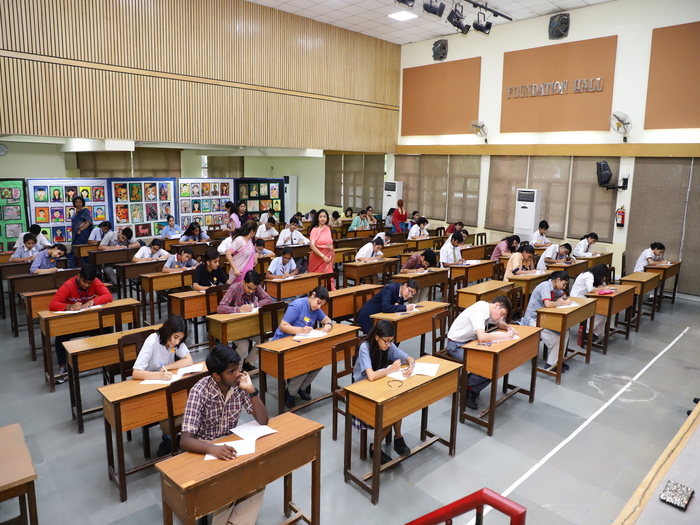
Difference in the School :Powerful Student Learning
- A strong sense of identity
- Aspiration towards a positive future
- Authentic engagement with adults
- Learning from real problems and real experiences, the structure and quality of curricula and assessment follow rather than lead these elements of learning
As a Sustainable School we will organize the learning around the pre-requisites of identity, aspiration, engagement, and experiential learning:
- Students will be actively encouraged to cultivate their personal identity as global citizens who contribute to a sustainable future.
- There will be an emphasis on positive solutions to challenges of sustainability rather than seemingly insolvable dilemmas and looming disasters. Sustainability themes will be integrated for learning and understanding into core curriculum areas.
- Students will be connected with adults who are actively engaged in sustainable development and social justice activities.
- Curriculum will be organized around experiential and service learning. Activities like conservation management; organic farming and forestry; social justice efforts, environmental monitoring and mapping; local heritage research, etc. to support key curriculum elements.
Non Formal Learning
The following list of pedagogies will be opted for some of the types of ‘non-formal learning’ activities that can take place through teaching the curriculum and extra-curricular activity:
- Group work/ Team work
- Student presentations
- Competitive activity
- Lessons designed by students
- School trip, or an overnight stay
- Outdoor activities
- Work in the community/ Social work
- Mentoring or support from older students
- Work according to written instructions (e.g. a worksheet)
- Long-term project work
- Hosting guests
- Work experience
Non formal learning will help in Building Character, which could be looked at building base of three character ‘capabilities’:
- Application, or ‘the ability to concentrate, discipline and motivate oneself to persist with and complete a task’
- Self-regulation, or ‘emotional control and emotional resiliency – an ability to bounce back from disappointment, conflict and distress’
- Empathy, or ‘an ability to put yourself in another person’s shoes – and to act in a way that is sensitive to other people’s perspectives’
Extracurricular activities
Extracurricular activities will include music bands, sports(indoor and outdoor), student newspaper, literary, social service, acting & drama, music(vocal and instrumental), cultural activities. These are the Strong pillars of building ‘positive attitude’ in an individual. A list of enrichment activities from, the following broad categories of extra-curricular activity can be outlined as:
- Sports activities (like team or individual sports)
- Creative activities (like art,dance, drama and model-making)
- Volunteering or social action (helping out your community, maintaining cleanliness in school campus and its surrounding, doing things for charity)
- Outdoor activities (like visiting wild life sanctuaries, hiking, camping and trekking)
- Deliberative activities (like debating societies, a model UN, youth parliaments or school elections)
- Uniformed activities (like NCC, Girl Guiding and Scout, traffic controlling or similar organisations)
Extracurricular activities will play the main role for moral character framework for Character Education in Schools, which will include four core dimensions of ‘character’:
- Moral virtuessuch as courage, honesty, humility and gratitude
- Civic virtuessuch as service and volunteering – the moral virtues acting in society at large
- Intellectual virtuessuch as curiosity and critical thinking
- Performance virtuessuch as resilience, application and self-regulation
With Added focus on integrating the skills of:
- Perseverance, resilience and grit (through the visits to heritage sites and giving the children the feel of our rich culture)
- Confidence and optimism (by encouraging them to participate in debates and open forums)
- Motivation drive and ambition (letting their creativity and imagination flow miles ahead by activities based competitions in arts and science)
- Neighbourliness and community spirit (adopt a village/visits to orphanage and old homes, teaching and caring poor children)
- Tolerance and respect ( team building activities and games)
- Honesty, integrity and dignity (project based activities and work)
- Conscientiousness, curiosity and focus (Yoga, Meditation and value education)
Apart from different activities and skills the school will emphasise on civic education from the beginning to develop the feeling of nationalism by providing instructions about Government history, law and governance and discussion on current/local/national/international issues. The respect for national flag, national song, national property and leaders who sacrificed themselves for the country will be imbibedin the children.
